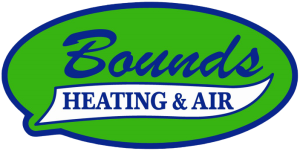6 Pro Tips for Troubleshooting Your Heater
While Florida’s winter is relatively moderate, it is still nice to have your heat available when you want it. Finding that your heater isn’t working well (or not running altogether) can be stressful, but you may not need to call an HVAC technician just yet.
First, try some of these tips to troubleshoot what may be happening — then give the pros at Bounds Heating & Air a call:
HEATER NOT WORKING
There can be a litany of reasons behind why your heater isn’t running, and not all necessitate you hiring a professional to handle the issue.
Check the Thermostat
The first move you should make is to check your thermostat. While you may assume that your thermostat’s settings are what they’re supposed to be, you should still make sure it is set to “heat.” For the heater to switch on, the temperature on your thermostat may need to be at least five degrees above room temperature.
Also, check to see if your thermostat is set to “auto” versus “on.” If it’s set to “auto,” the heater should start up automatically when your home’s temperature drops a few degrees below the temperature specified on the thermostat. If your thermostat is set to “on,” then your system’s fan will continue circulating air even if your heater isn’t heating it. This setting can make it feel like cold or room temperature air is coming from your air vents, so you may want to switch to “auto.”
It’s best to make sure your settings are correct to avoid the embarrassment of hiring a technician only to find out nothing was wrong.
Check the Circuit Breaker
If your thermostat settings are fine, you should check your home’s breaker panel and look for the circuit that controls your heater’s indoor unit. If you own a heat pump, also check the circuit associated with the outdoor unit. If you find that the breaker has been set to the “Off” position, or it’s in the middle, you should test your breaker by flipping it back and forth. After flipping the breaker, make sure that it is placed in the “On” position.
Flipping the switch will restart the circuit that controls the heater’s indoor unit. If it’s still not working despite resetting your circuit breaker, you might have an issue with the wiring in the circuit or the circuit breaker itself. In that case, it’s better to hire an experienced professional to fix your problem.
Check the Furnace Door
As a safety precaution, some furnaces won’t run unless their door is closed securely. Double-check that the door is in place by opening it and firmly shutting it.
HEATER STRUGGLING TO WARM YOUR HOME
If you turned your heating system back on for the winter and found it struggling to warm your home effectively, the problem may not be as severe as you might think.
Replace Your Clogged Filter
If your furnace is struggling to produce the usual amount of heat, this could signify that your furnace’s filter is clogged. This common maintenance chore is a relatively easy fix and is an excellent way to improve your air quality.
Air filters typically last for up to 90 days, but heavy HVAC system use can clog a filter in as little as 30 to 60 days. Replace the filter with a new one but make sure your filter is pointed in the right direction because that could hurt its effectiveness.
Clear and Clean the Space Around Your Furnace
Did you know that heaters require proper airflow and ventilation to function well? If your heater isn’t working well, you might need to declutter and clean the surrounding area.
If the area around your furnace is surrounded by objects, it can hurt how effectively your home is heated. Not only can clutter around your furnace affect your heating, but it also represents a potential fire hazard.
Regularly cleaning the area surrounding your heater is a great way to maintain its health while removing the flammable items from the site. Dust and lint also pose a fire hazard and can cause clogs sooner than usual, which requires you to replace your filter more often.
Check Your Vents
Blocked vents could be hurting the heat flow in your home. It would be best if you walked through your home, checking all your ducts to make sure that they’re unblocked. You should remove any piece of furniture or debris blocking the openings of your vents to allow the heat to flow freely throughout your home.
If all your attempts to troubleshoot your heating system fail, call (352) 472-2761 to have the experienced professionals at Bounds Heating & Air handle all your HVAC issues.



 There are a number of ways you can
There are a number of ways you can 